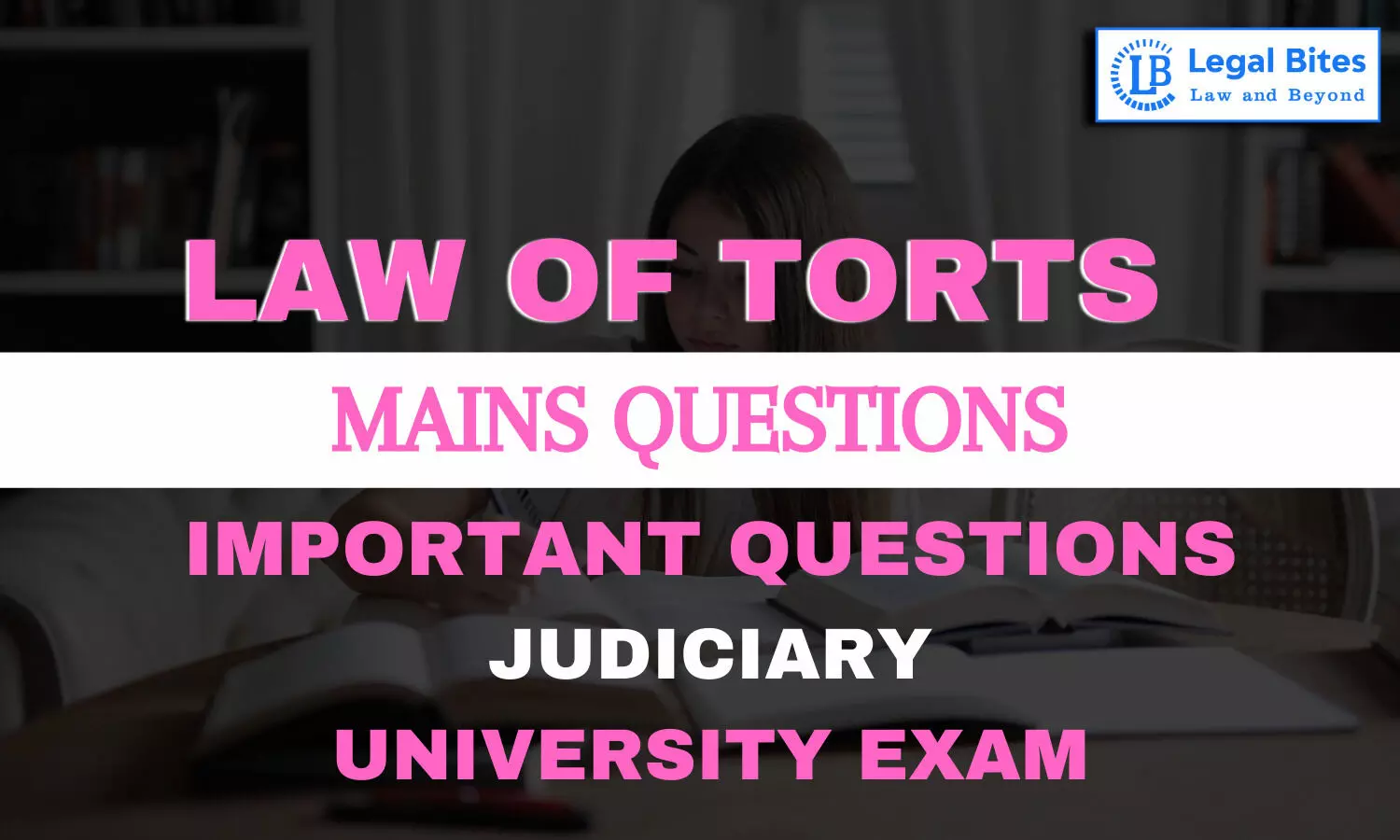Explain the following: Ubi jus ibi remedium.
Find the question and answer of Law of Torts only on Legal Bites.;

Question: Explain the following: Ubi jus ibi remedium. [RJS 1971, 1976, BJS 2000, UPJS 2018]Find the question and answer of Law of Torts only on Legal Bites. [Explain the following: Ubi jus ibi remedium.]AnswerThe maxim "Ubi jus ibi remedium" means "where there is a right, there is a remedy." It is a fundamental principle of law that provides that for every legal right that a person or entity possesses, there must be a corresponding remedy available to enforce that right. In other words, if...
Question: Explain the following: Ubi jus ibi remedium. [RJS 1971, 1976, BJS 2000, UPJS 2018]
Find the question and answer of Law of Torts only on Legal Bites. [Explain the following: Ubi jus ibi remedium.]
Answer
The maxim "Ubi jus ibi remedium" means "where there is a right, there is a remedy." It is a fundamental principle of law that provides that for every legal right that a person or entity possesses, there must be a corresponding remedy available to enforce that right. In other words, if a person has a legal right, but no remedy is available to enforce it, the right is meaningless.
The maxim is particularly important in the law of torts, as it provides a basis for individuals or entities to seek compensation for harm caused to them. If a person suffers harm as a result of someone else's actions or negligence, they have a legal right to seek compensation for that harm, and there must be a legal remedy available to enforce that right.
A classic example of this principle is the case of Ashby v. White, (1703) 92 ER 126, where the plaintiff was denied the right to vote by the defendant, who was a returning officer. The court held that although there was no specific legal remedy available for the plaintiff's situation, the plaintiff had a legal right to vote, and therefore, a remedy must be provided. The court stated that "the law will not suffer a wrong to be without a remedy."
Similarly, in the case of Donoghue v. Stevenson, [1932] UKHL 100, the plaintiff consumed a bottle of ginger beer that contained the remains of a decomposed snail, causing her to become ill. The court held that the defendant had a duty of care to ensure that the product was safe for consumption, and because the defendant breached that duty, the plaintiff had a right to seek compensation for the harm caused. The court stated that "where there is a legal right, there must be a legal remedy."
The maxim also applies in situations where there is a breach of contract. If one party fails to fulfill their obligations under a contract, the other party has a legal right to seek compensation for any harm caused as a result of that breach, and there must be a legal remedy available to enforce that right.
The maxim "Ubi jus ibi remedium" emphasizes the importance of ensuring that there is a legal remedy available for every legal right. It serves as a reminder that the law exists to provide justice and fairness to individuals and entities, and that every wrong must have a remedy.





